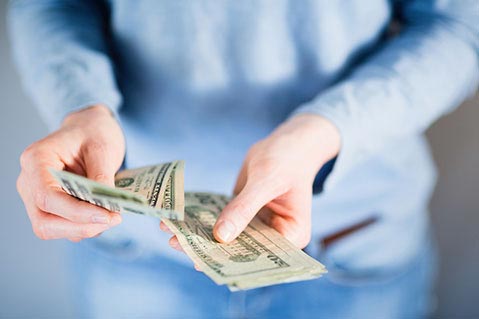News June 06, 2017
Proposed Minimum Wage Hike Prompts Concern
Legislators in Illinois are pressing forward with a plan to raise the state’s minimum wage to $15 per hour, an initiative that has sparked concern among some business owners in the promotional products industry and beyond. The move toward a higher minimum continues a recent trend occurring in states nationwide.

Last week, the Illinois Senate and House of Representatives passed a bill that would gradually increase the minimum wage over the next five years from the current $8.25 to $15 by 2022. To become law, Gov. Bruce Rauner has to sign the legislation – something that’s unclear he’ll do given his criticism of the proposal.
The Republican governor told the Chicago Tribune that the bill the Democrat-majority General Assembly passed would be “crushing for our small businesses and crushing for job creation, and extreme. Rather than do a real deal that’s a compromise, they’re doing something that they know the business community would be just apoplectic about. And they know I can’t support that, that’s not a reasonable compromise.”
Despite the looming uncertainty over whether the legislation will become law, the proposed minimum wage hike has some promo industry business owners in the Land of Lincoln worried. “This will make everything more expensive, and Illinois businesses will be less competitive,” said Steve Kanney, owner/president of Target Decorated Apparel (asi/90549), a firm in Chicago’s suburbs. “It’s not 50 years ago where everyone buys locally. If it gets too expensive here, people will look to source from Wisconsin or Indiana or somewhere else.”
Kanney, whose firm employs upward of 70 people, said some businesses could look to move out of state or refrain from hiring to avoid a profit-sapping wage bill. “We hear so much about trying to bring jobs back to the U.S. and doing things here, but then Illinois goes swimming in the other direction with something like this that leads to higher prices for everyone,” Kanney said.
Nonetheless, proponents of increasing the hourly minimum say that it’s necessary because working people can’t survive on the current rate. They argue that a higher minimum wage will lead to less reliance on taxpayer-funded social services, while also providing lower-wage laborers with a bit of disposable income that could help drive economic growth. That, in turn, could create more jobs.
Marc Simon, CEO of Top 40 distributor HALO Branded Solutions (asi/356000), headquartered in Sterling, IL, believes that the overall impact of the wage rise will be positive. “While it will put a short-term strain on small business and service businesses, there should be long-term benefits to providing a living wage to all workers because higher income will have a direct impact on higher consumer spending,” said Simon.
While he believes that promo decorators may have to institute modest price increases to offset the cost of higher wages, he feels the impact shouldn’t be significant. “Most skilled and semi-skilled positions at branded merchandise companies, like HALO, already pay well above the intended increased minimum wage,” Simon said. “We see no impact to our business.”
At Chicago-based Culture Studio (asi/700559), CEO Rich Santo believes the “dramatic” increase in wages could hamper some companies’ ability to compete on national contracts. Still, he doesn’t anticipate that being an issue for Culture Studio, as the company pays staffers above the minimum wage. “At our shop we run such a fast pace, high-energy environment that the minimum just is not acceptable, so in turn we do not pay anyone the minimum wage,” said Santo.
Earlier this year, 19 states raised the bar on minimum wage. Those include Massachusetts and Washington, which are now tied for the highest state-level minimum wage in the nation at $11 per hour.
